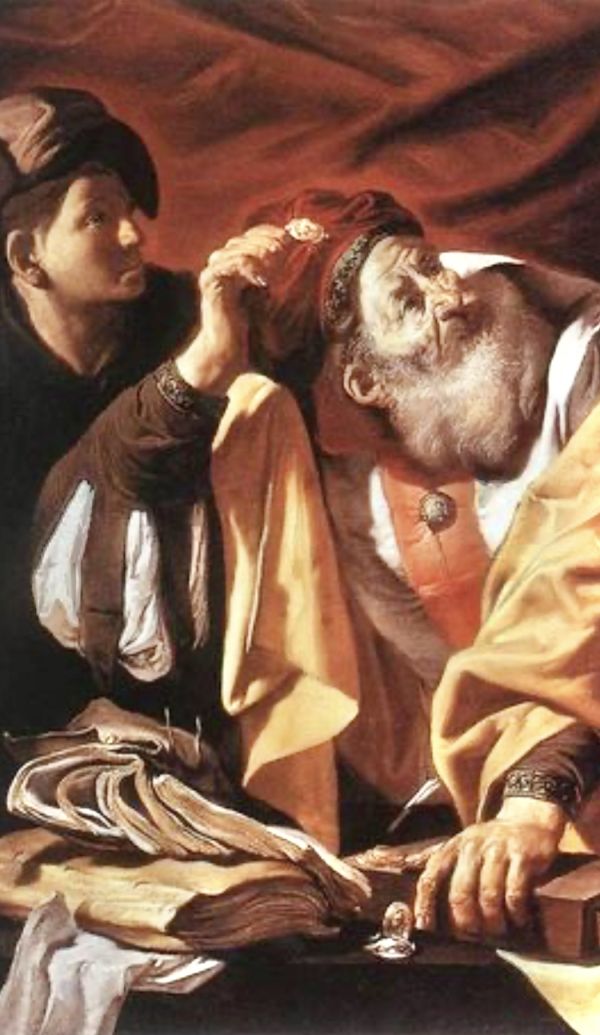Sitting and keeping eyes on the accounting records, only then rich - nay, ‘sir’
(Mk 2:13-17)
At the time when Mk drafted his Gospel, in the communities of Rome a friction arose over the kind of eligible participation in meetings, and on Breaking the Bread.
Opinions conflict that confronted one against the other the group of converts from paganism and the Judaizers.
Mk narrates the episode of Levi [avoiding explicitly calling him Matthew] to accentuate his derivation - and in this way describing how Jesus himself had faced the same conflict: without any ritual or sacred attention, except to man.
The evangelist thus intended to help the faithful to understand the leap from common religiosity to Faith in the Person of Christ, and trust in the brethren, without distinction.
To this end, the Gospel passage emphasizes that the apostles themselves (v.15) had not been called by the Lord at all to the rigourous segregation practice typical of ethnic-purist beliefs.
Mk’s Good News is that life of Communion is neither a gratification, nor a recognition.
The Eucharist is not a reward for merits, nor a discrimination in favor of sacral marginalization.
Prohibition must be replaced by friendship. Intransigence must be supplanted by indulgence, hardness by condescension.
The disciples of the Lord must share existence with anyone - even public sinners like the son of Alpheus.
This without first demanding any license, nor long disciplines of the arcane - or practices that celebrate distances [such as ablutions that preceded the meal].
In the parallel text of Mt 9,9-13 the tax collector is explicitly called by name: Matthew, in order to emphasize the identical appeal to the community.
Matathiah means «man of God», «given by God»; precisely «Gift of God» [Matath-Yah].
According to the direct teaching of Jesus himself - even towards one of the apostles - the only impurity is that of not giving space to those who ask for it because they have none.
The Lord wants to share with transgressors, not because of an ideological banality: it is the invitation to recognize themselves. Not to subject ourselves to some demeaning paternalism, but because allowing ourselves to be transformed from poor or rich into 'lords' is an asset.
«And it happens that He lies [at canteen] in His House and many tax collectors and sinners were lying down with Jesus and his disciples, because they were multitudes and they followed him» (v.15).
«They were lying down at canteen»: according to the way of celebrating solemn banquets by ‘free’ men - now all free.
How wonderful, such a ‘monstrance’! A living Body of Christ that smells of concrete Union, conviviality of differences - not of rejections for transgression!
It is such all empathetic and regal the beautiful awareness that paves the way and makes credible the content of the Announcement (v.17) - although it impacts the susceptibility of the official teachers.
But Jesus inaugurates a new kind of relationship, and a New Covenant, of fruitful divergences - even within us.
It is not ‘perfection’ that makes us love the Exodus.
[Saturday 1st wk. in O.T. January 18, 2025]












